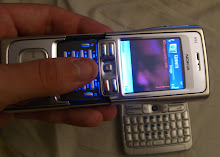With regards to obsolete computers being precieved as useful in the third world, there are generally a few problems with that.
First, machines no longer useful in the western world are in general expected to run the same software that they're no longer useful for when donated to some pc recycling project in say Mozambique. Most of of the software will be pirated but that isn't want this message is about.
Second... Computer hardware (especially laptops) doesn't age gracefully. disks die, powersupplies fail, fans on heatsinks fail, crt's wear out. machines fill up with dust etc... A PC that's marginal in an airconditioned office on conditioned power, is likely to be useless with unstable power and 35c weather.
Third. eventually this stuff has to be discarded. New machines have gradually contained lower quanties of heavy metals toxic plastics, toxic battery formulations... At this point one probably wouldn't feel to bad about landfilling an RHOS (reduction of hazardous substances) compliant pc whereas most 486 and pentium class machines (with the exception of some ibm and fujitsu machines that were designed for certain markets) are classified as toxic waste once they're parted out. These machines are hard to recycle responsibly even in the United States.
So what to do?
If you donate, send new machines, the lifespan of their utility will be much longer. New machines are less toxic than old ones, RHOS machines are even less so. Send LCDs not CRT's, yean non-RHOS lcd's contain heavy metals, but a lot less than CRT's...
A lot of people see donating old hardware as a philanthropic activity and it certainly can be, but in many cases it's just people dumping their waste in the third world. That's just evading responsiblity back home and it doesn't do the recipients of the "aid" any good.




